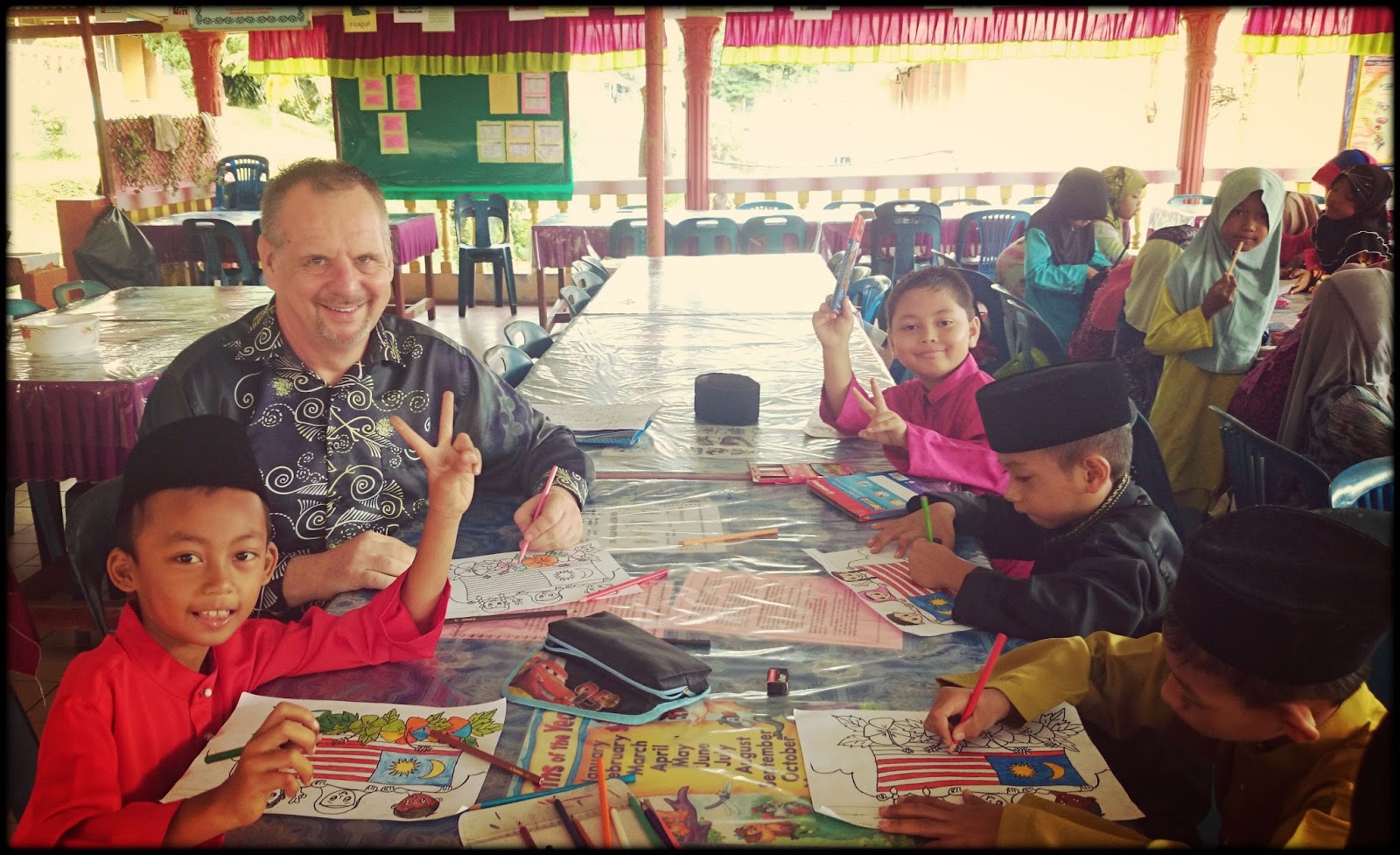TELL2 mentors and recently graduated high school teachers
 |
| Don't put your hand up if you're not having fun! |
Recently, TELL2 mentors from Jerantut and Kuala Lipis joined the TELL programme project manager for Pahang and Terengganu at a teaching workshop for recent graduates organised by the educational charity Yayasan in Kuala Terengganu. The focus for the day-long workshop was managing students' learning through group work and activities as well as creating English language events to complement the school curriculum. Joshua looked at the interconnection between play and learning, Mark demonstrated some popular games to get children talking in class and Mel led a discussion and workshop on staging school events. As well as working our individual topics, each mentor also contributed questions for Mel's topic review and general knowledge PowerPoint quiz.
 |
| Teamwork is everything! |
My topics were based on the advantages of peer assisted learning (PAL). Many of the workshop participants were familiar with Vygotsky's Zone of Proximal Development which explores the space between what students cannot accomplish and what they can. With this in mind, our discussion focused on ways that teachers can help learners to cross over from what they can't do, to what they can do with assistance and finally to what they can do alone. The workshop explored different techniques for 'scaffolding' or supporting pupils through this zone.
The second part of my topic was a kind of show and tell of peer assisted learning events that we have introduced into some of the schools in the Jerantut cluster. Firstly, I wanted to show how school-based English language events can be engineered in such a way that students are not necessarily the 'receptors' while teachers and mentors are always the 'transmitters'. Referring back to Vygotsky's work, we could see how such events, where pupils are expected to take responsibility for each others' learning, were beneficial to all pupils - both receivers and transmitters.
I hope that in 2015, the TELL2 Jerantut cluster teachers who have participated in PAL programmes during 2014 will work with others to help teachers get PAL programmes off the ground in even more schools in the Jerantut cluster.
Stephen-Peter Jinks (ELC Jerantut)






.JPG)








































